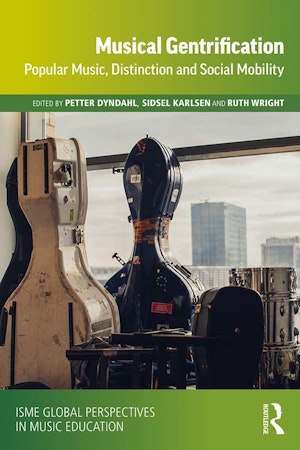Field of study: Music Education
Musical gentrification and socio-cultural diversities

Why have certain popular music genres gained considerable educational, curricular and institutional status during the past decades?
Summary
Musical Gentrification is an exploration of the role of popular music in processes of socio-cultural inclusion and exclusion in a variety of contexts. Twelve chapters by international scholars reveal how cultural objects of relatively lower status, in this case popular music, are made objects of acquisition by subjects or institutions of higher social status, thereby playing an important role in social elevation, mobility and distinction. The phenomenon of musical gentrification is approached from a variety of angles: theoretically, methodologically and with reference to a number of key issues in popular music, from class, gender and ethnicity to cultural consumption, activism, hegemony and musical agency. Drawing on a wide range of case studies, empirical examples and ethnographic data, this is a valuable study for scholars and researchers of Music Education, Ethnomusicology, Cultural Studies and Cultural Sociology.
Documentation
The results are available here:
- Dyndahl, P., Karlsen, S. and Wright, R. (red) (2020): Musical Gentrification. Popular Music, Distinction and Social Mobility Routledge (open access).
- Vestby, S. (2017): Folkelige og distingverte fellesskap. Gentrifisering av countrycultur i Norge - en festivalstudie. PhD-dissertation, INN (in Norwegian)
- Read about the project and publications in the Research Council's project bank.
Articles relevant
Published: Mar 3, 2014 — Last updated: Feb 17, 2026
